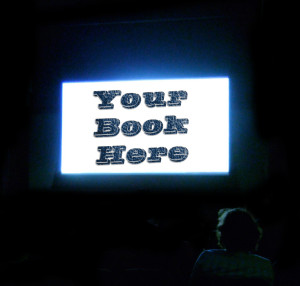You sit down at your computer, and the threads of all those ideas you had just as you drifted off to sleep or were singing in the shower evaporate. A vast white space fills your vision. It’s terrifying, a place of nothingness that you, you and your imagination, must transform into words that will tell your story.
It’s jumping off the white cliffs of Dover, across the face of the moon, or staring for hours at the inside of a gum wrapper, or whatever goblin gets you when it comes time to actually type.
We each have our own peculiar ways to get started. Hemingway’s is great: stop writing in the middle of a scene that’s going well and where it’s clear what will happen next. I’ve also used index cards, like Nabokov, but mostly for ideas and notes for continuity as opposed to entire books and scenes, pulling them out when I’m stuck to get going. I lo-o-ove prompts (in a shameless act of promotion, please see my book, A Writer’s Group Companion: A Twelvemonth of Prompts and Recipes, http://www.amazon.com/Writers-Group-Companion-Deborah-Auten-ebook/dp/B00H6TQP02/ref=sr_1_1?ie=UTF8&qid=1395006754&sr=8-1&keywords=deborah+auten).
 But the biggest tool I use is the book-movie I play in my head. Sometimes I start the movie with a mind’s eye view of the setting, other times with a character or two. I let the scene take shape. To use an example, one of the two books I’m writing now, my Evie-book, is first person. Here’s how I begin:
But the biggest tool I use is the book-movie I play in my head. Sometimes I start the movie with a mind’s eye view of the setting, other times with a character or two. I let the scene take shape. To use an example, one of the two books I’m writing now, my Evie-book, is first person. Here’s how I begin:
I am Evie, standing in front of a waterfall that hides an opening into a hidden hollow. What am I wearing? Am I chilled or sweaty? Have I been there before? What’s the water doing? How fast does it flow? Do I catch the hint of sunshine on droplets? What color is the rock? Are there smooth pebbles in the stream below? Am I crowded in by trees or in a clearing? What is it about this place that allows Evie to see what others don’t?
I am there, I can smell the pine trees, hear the water and the birds, feel the sun on my bare shoulders. I let the movie roll forward, and now I see the flicker of light behind the waterfall. I steeple my hands and walk forward. The curtain of water parts. I walk through the spray and find the passage, let my fingers graze the rough rock walls on both sides of me. I’m scared, I’m excited, I don’t know what’s ahead. There’s the opening. Through it I see…
You get the idea. Inside the movie, I can stop and look around to see what details pop into my particular vision of where I am, where Evie is. I am in Evie, my heart is pumping, my mind is racing, I’m wondering what I’ll find on the other side. What’s my hand doing? What do I smell, touch, taste?
(If you want to see the resulting description, click on “Writing/Books” above; the post is “The Evie-Book, an excerpt from the beginning: http://deborahauten.com/the-evie-book-an-excerpt-from-the-beginning/.)
Getting the movie-in-your head to roll smoothly does take some practice, and relies on images you have or can create from experience (or Google street view…). But as fiction writers, we all have the imagination–we just have to nudge it from the verbal to the visual.
A couple of prompts to get you going:
Here’s a prompt my former writing teacher, Jennifer Owings Dewey, used to use in class, and which might be helpful in movie imagination: find an interesting picture (she loved nature shots, but it could be anything that catches your interest). Write a description with a) absolute objective attention to detail followed by b) an imaginative and subjective characterization of the same image, including your emotional response, which could also turn into a story.
And for those days when my characters stare into space, I get the soundtrack going too, a song or tune that comes to epitomize the feel of the book. For the Evie-Book, it’s from the soundtrack of “O Brother, Where Art Thou?”, the instrumental version by John Hartford and Norman Blake of “I Am A Man of Constant Sorrow.”
This makes sense, Deb. If we enjoy watching the movies we love over and over again, then we should be able to “watch” the novels we write over and over again; enough to actually create them. And if we get bored of one scene? Take it out!